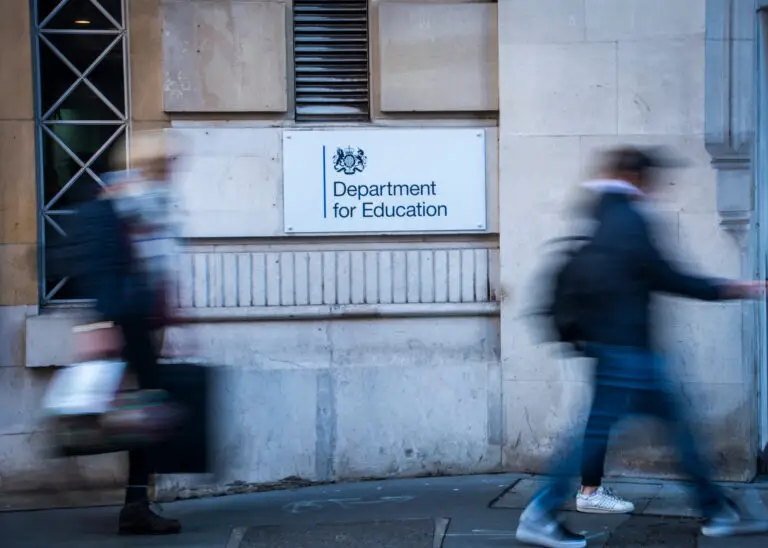Climate change, energy security, artificial intelligence. The productivity puzzle, stagnant economic growth, creaking public services. Whichever way you slice it, the UK is facing some big challenges. Some are global, and some are domestic, but they all require significant policy interventions to help resolve them. From early years through to further and higher education, the education sector has a considerable part to play in the future of the UK’s prosperity and security. If we can commit to investment and reform in these areas, we can address the challenges and create opportunities. The impact of education policy is to set the foundations of a society, from which everything can be developed. However, change will not happen overnight and will require political will, long-term planning and financial commitment.
Workforce
One of the biggest issues facing the UK today is shortages within the labour market. The combined impact of the pandemic, Brexit, and an ageing population has caused a significant labour shortage. This has led to slow economic growth, rising inflation and put additional pressure on public services, particularly the national health service and social care. Meanwhile, estimations from the Spring Budget revealed that there are 435,000 people in England with a child under three who are not in work due to their caring responsibilities. Investing in a childcare system that is affordable for parents and employs and pays well-trained professionals has huge benefits for children’s development, improving social mobility, and helping to get thousands of people back into the workforce, at a time when it is desperately needed. Significant investment and reform will be required to support early years providers and ensure that childcare is affordable for all parents who wish to use it, to create a sustainable system which gives parents the freedom to return to work.
Not only can education policy bring people back into the labour force, but it also plays a huge part in improving the existing labour force’s productivity. The UK is the leading tech ecosystem in Europe, and third overall in the world. However, the digital skills gap is estimated to cost the UK £63 billion in lost GDP per year. Investment in upskilling and reskilling the workforce is going to be a key component of education policy in the next few years if we are going to remain competitive in an international tech sector. Harnessing the power of the tech industry to enhance productivity and boost economic growth through reforming and investing in the skills system can also address some of the regional inequalities seen in the UK. The Northeast has the lowest average disposable income in the UK, saw the biggest fall in growth during the pandemic, and has the joint-lowest employment rate in England. Regional skills investment is foundational to improving these issues, reducing inequalities and helping to make regions more self-sufficient.
Technology
Meanwhile, the transition to sustainable energy and the development of artificial intelligence provides opportunities as well as poses threats. Climate change and AI are, arguably, the two biggest existential challenges facing the planet right now. Finding ways to tackle, and utilise in the case of AI, will be critical for the economic sustainability of the future.
For instance, new research has found that AI could be used to reduce the carbon emissions of the aviation industry. With AI potentially being at the forefront of innovations to reduce carbon emissions and tackle the climate crisis, investment in science and technology education should be part of a long-term strategy to develop a workforce that has the knowledge and skills needed to be at the forefront of the technological advancements that are going to be vital to making the energy transition needed to avert the climate catastrophe.
Currently, our education system is not equipped to deal with this. In the 2022/23 academic year, the recruitment of physics teachers was 83% below the target. This means, we do not have enough teachers in schools who can inspire the future scientists who will be critical to making the transition to a greener economy.
Therefore, investment in the teaching profession is needed in order to address the current recruitment and retention crisis. Adequate training, access to continued professional development and sustainable pay are the key components to ensuring that the best and the brightest go into the profession to teach the next generation.
Towards a green & prosperous future
Education reform and investment must be implemented as part of a long-term strategy to grow and achieve a thriving and greener economy. Investing in the education of children today is going to be a vital step towards securing the country’s economic and energy security tomorrow.





